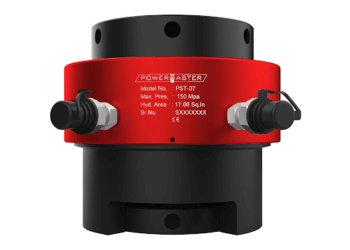Modular Vault: A Modern Solution for Secure and Flexible Storage
Security is a top priority for industries that handle cash, sensitive data, or high-value assets. Traditionally, businesses relied on permanent vaults built with reinforced concrete to ensure protection. However, these structures are costly, time-consuming to build, and difficult to modify or relocate. Today, the demand for more adaptable solutions has given rise to the modular vault—a secure, efficient, and future-ready alternative to traditional vault construction.
This article explores what modular vaults are, how they work, their benefits, and why they are becoming the preferred option across industries worldwide.
What Is a Modular Vault?
A modular vault is a prefabricated security enclosure designed to protect valuable items, cash, records, or sensitive materials. Instead of being constructed on-site with poured concrete, modular vaults are made from pre-engineered panels manufactured off-site. These panels are then transported and assembled at the desired location.
The vault’s modular design allows for flexibility in size, thickness, and security rating. Panels are built to meet international security certifications, such as UL (Underwriters Laboratories) burglary-resistance standards. Depending on the requirement, vaults can be engineered to withstand fire, ballistic impact, and even explosive attempts.
Advantages of Modular Vault Systems
1. Rapid Installation
Unlike traditional vaults, which can take months to design and construct, modular vaults can be installed in a matter of days or weeks. Prefabrication speeds up the process, making them ideal for businesses that need a quick setup without long construction delays.
2. Scalability and Flexibility
Modular vaults can be resized, relocated, or expanded as business needs evolve. If a company outgrows its current space or moves to a new location, the vault panels can be disassembled and reassembled elsewhere—something impossible with a permanent concrete vault.
3. High Security
Despite being modular, these vaults are not any less secure than their concrete counterparts. Manufacturers use advanced materials, such as composite alloys and reinforced steel, to ensure maximum protection. Many modular vaults meet or exceed UL security classifications ranging from Class M to Class 3, making them highly resistant to forced entry and sophisticated burglary attempts.
4. Cost-Effective Solution
Modular vaults reduce overall costs in several ways. The faster installation minimizes downtime, while the ability to relocate eliminates the need for building a new vault in the future. Additionally, less on-site labor is required, further lowering construction expenses.
5. Minimal Site Disruption
Installing a traditional vault involves heavy construction, noise, and operational disruptions. In contrast, modular vaults are delivered in sections and assembled quickly with minimal interference to daily operations—an important factor for banks, data centers, and retail stores that cannot afford downtime.
Common Applications of Modular Vaults
The versatility of modular vaults makes them suitable for many industries, including:
- Banking and Financial Institutions: Safeguarding cash, gold, and confidential documents.
- Retail and Jewelry Stores: Protecting high-value merchandise during non-operating hours.
- Pharmaceutical Companies: Ensuring compliance with DEA and regulatory storage requirements for controlled substances.
- Government and Military: Storing classified documents, firearms, and sensitive equipment.
- Data Centers: Securing servers, digital backups, and critical IT infrastructure.
- Cannabis Industry: Meeting legal requirements for the storage of cannabis products in legalized regions.
The Future of Modular Vault Technology
The security industry is constantly evolving, and modular vaults are advancing with it. Modern systems now integrate biometric access controls, AI-powered monitoring systems, and smart alarm technologies for enhanced protection. Lightweight yet ultra-strong composite materials are also being introduced, making vaults easier to transport while maintaining high resistance levels.
Additionally, modular vaults are being designed to align with sustainability goals. With reusable panels and less construction waste, they are more environmentally friendly compared to traditional methods.
Conclusion
A modular vault represents the perfect blend of strength, adaptability, and cost-effectiveness. From financial institutions to government agencies and retailers, more organizations are shifting away from traditional vaults in favor of modular systems that meet today’s demands for speed, flexibility, and high-level security.
As industries continue to evolve, modular vaults are set to become the standard for secure storage—providing a reliable, future-proof solution for businesses that prioritize both protection and adaptability.









